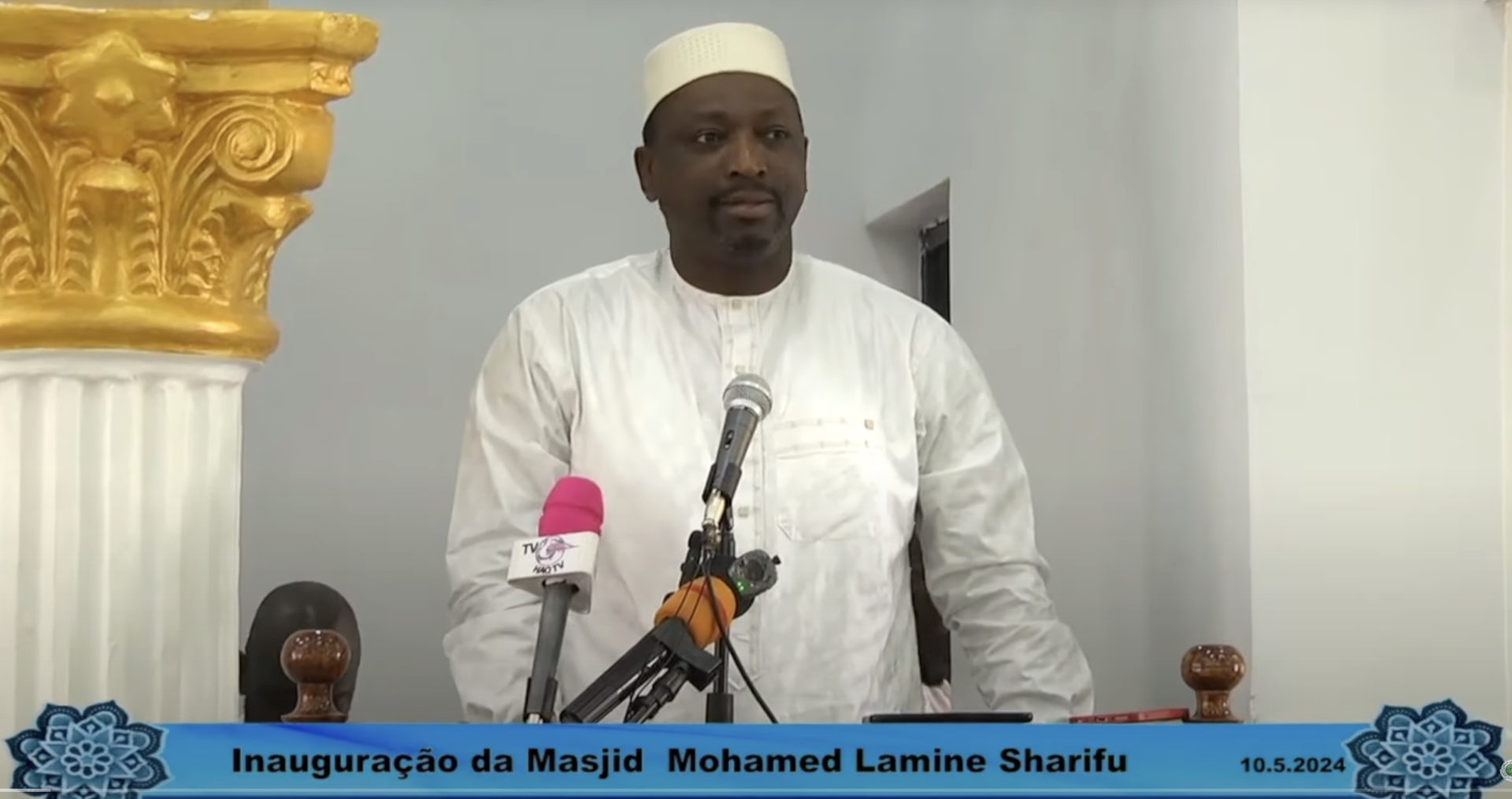
At the inauguration of Muhammad Al-Amin Mosque in Nampula, Mozambique, H.E. Prof. Koutoub Moustapha Sano, Secretary General of the International Islamic Fiqh Academy, delivered the Friday sermon on Friday, 02 Dhul Quida 1445, corresponding to 10 May 2024.
His Excellency chose as a subject the hadith of the Prophet (PBUH) reported by Abu Dhar (RA):“Take advantage of five before five: your youth before your old age, your health before your illness, your riches before your poverty, your free time before your work, and your life before your death.”
His Excellency explained the hadith, “There are five things that will inevitably happen to each of us, whether rich or poor, scholar or ignorant, man or woman, child or adult. These five situations will not spare anyone, and none of us will be spared: Your youth before your old age, that is, this age phase that we live in, is a blessing from Allah, and it is a stewardship from Allah, because it represents strength, ability, mobility, activity; in it is clear-mindedness, in it is readiness for everything in this life. Your youth before your old age, but this youth is a phase that will pass, and another phase will come after it; this phase is the phase of old age, the phase of old age, i.e., build for your old age, build for your old age in your youth what you will benefit from when you become an old man when you become unable to move.” He explained that youth is the best phase that a person goes through, and it is an opportunity to obey Allah, His Majesty, to adore Him, and His Prophet. It is also an opportunity to build the future and do good deeds. It is a phase that will inevitably pass away and be followed by the phase of old age, which will come with its circumstances. He also called for seizing the phase of youth in seeking knowledge, learning the Book of Allah and the Sunnah of His Messenger, and staying away from everything that would harm us in old age.
His Excellency then spoke about seizing one’s health before illness, saying: “Health is a great blessing from Allah. Health is a great blessing from Allah Almighty, and it is a crown on the heads of the healthy that only the sick can see: (Two blessings in which many people are deprived of health and plentiful time) Health in the body, health in the mind, health in clothing, health in housing, health is everything, health in speech, in hearing, in seeing, in good deeds… this health must be harnessed for Allah, and you must thank your Lord who gave you this health. However, illness will inevitably come no matter how healthy we are, and we must use this health to obey Allah, and stay away from all things forbidden by Allah, because it is a stewardship from Allah.
His Excellency then discussed the saying of the Prophet (PBUH) which explained what Allah the Almighty said “Wealth and children are [but] adornment of the worldly life. But the enduring good deeds are better to your Lord for reward and better for [one’s] hope.“ Hence, We will be asked about it on the Day of Resurrection where we earned it from, and what we spent it on, so we must thank Allah for it and fulfill the rights that Allah has imposed on this money, one of the most important of these rights is Zakat.
His Excellency then talked about the last two things in this hadith, your free time before your busy time, which is that man should utilize this free time before he is busy with the worries he has by obeying Allah and filling it by increasing the remembrance of Allah, abstaining from gossip, backbiting, cheating, and everything that angers Allah, the Almighty. His Excellency reminded everyone that death is coming and will catch up with us even if we are in built-up towers, which is the inevitable fate that we all await, no matter how long it takes and no matter how long its date is, it will inevitably come, as promised by Allah, the Almighty, Glory be to Him, who said in the Quran: (Indeed, you are to die, and indeed, they are to die.), and (And We did not grant to any man before you eternity [on earth]; so if you die – would they be eternal?)
It is worth noting that the sermon was well-received by the audience.
Read Also
Lastest








